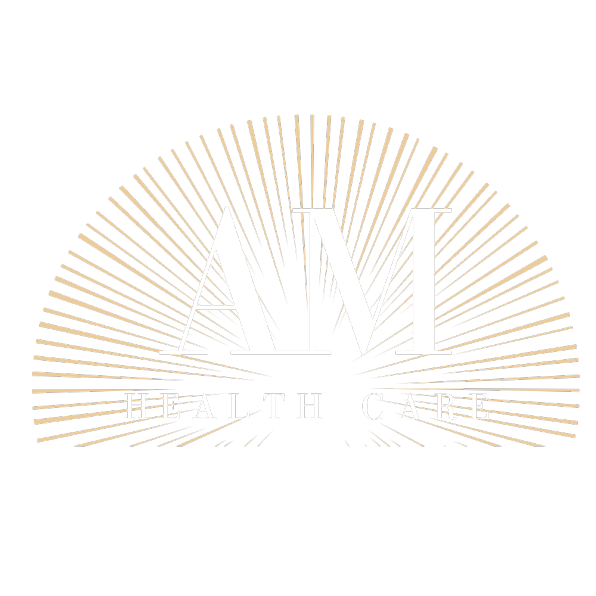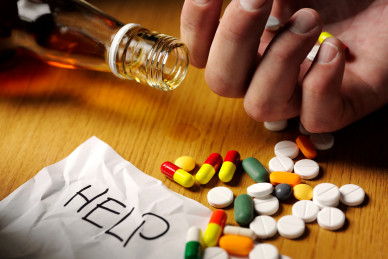Co-Occurring Disorders and Substance Abuse
If you have a mix of mental health issues like anxiety, depression, or bipolar disorder and also suffer from substance abuse, it is defined as dual diagnosis or co-occurring disorder. Having a mental health problem can be a challenge in itself through your everyday life, when you stack on top of that a substance abuse problem such as drug addiction or alcoholism it make t even hard to get by but there are programs available that can assist you in being treated. With the right assistance from a quality facility, anyone can overcome their disorders and become the person they want to be.
Have a better understanding of co-occurring disorders and dual diagnosis
Many people that suffer mental health issues also battle addiction of some sort. However, two disorders such as depression and anxiety may be similar that do not always cause another from happening.
- Mental health issues can worsen with the use of alcohol or drugs. Substance abuse can increase the risk of having more symptoms of mental health problems. Alcohol and dugs typically have a negative effect on medications so mood stabilizers and antidepressants usually become less potent and do not work as well.
- Many people self-medicate themselves with alcohol and drugs to numb the pain. This never works and can cause even worse side effect and can lead to a longer road back to recovery.
- Mental disorders can become more problematic with the use of drugs or alcohol. It is a known fact that a mental issue is caused from genetics being interplayed, your environment you live in and other factors that can contribute from the outside elements. You may easily push yourself over the deep end with the use of drugs or alcohol if you suffer from a mental illness.
Understanding if you have co-occurring disorders or dual diagnosis
Most people typically have a hard time self-diagnosing themselves with a mental health issues such as depression or bipolar disorder. It can be hard to separate what is a mental health problem and what is substance abuse related.
Usually what complicated things is denial, which is one of the most common problems with drug and alcohol abuse. It can be difficult to come to senses how much you rely on alcohol or drugs and how much of a negative impact it has on your life. Denial can also happen with individuals that suffer from mental health problems. Having symptoms that resemble anxiety or depression can be hard to deal with and many times people just ignore them and hope they never return.
Coming to senses that you have a dual diagnosis or co-occurring disorders
One thing to always remember is that mental health issues and substance abuse never get better if they are ignored. In reality they tend to get worse. Admitting that there is something wrong and that you have a problem is the first step in your journey to conquer your problems and regaining your life again.
- Take a look at your family history. If your family has a past with mental disorders or substance abuse, there is a higher risk that you will yourself as well.
- Think about how sensitive you are to drugs or alcohol. Are you a “light-weight” when it comes to alcohol or drugs? Have you ever thought about how you may have a relationships built between your mental disorder and your abuse? For example, you experience a lot of anxiety when you do drugs.
- Take a close look at your symptoms when you are sober. If you are sober and still dealing with your mental health problem there may be more that needs to be unveiled then originally thought.
- Think about the past. Have you ever been treated in the past for your substance abuse or mental health issue? Did you fail in any way because of one or the other was affecting your treatment?
Alcohol abuse or substance abuse signs of symptoms
If you are considering that you possibly may have a substance abuse issue, the questions below may assist you in figuring that out. If you answer “yes” more than you answer “no” then most likely your substance use is a problem.
- Have you ever thought that you should not drink or use drugs as much as you do?
- Have you tried to slow down your usage, but couldn’t?
- Do you ever tell yourself you use drugs or drink less than you really do?
- Have you ever been approached from a friend or family member that you usage is out of control?
- Does your drinking or drug use ever make you feel guilty or ashamed?
- Do you ever regret saying something or doing something when your are drunk or high on drugs?
- Do you ever drink so much or take so many drugs that you blackout?
- Has your relationships been affected because of your drinking or alcohol use?
- Have you been in trouble at work or with the law because of your drinking or drug use?
Common co-occurring disorders symptoms and signs
Depression, bipolar disease, and anxiety disorders are the most commonly co-occur with substance abuse.
Depression: common symptoms and signs
- Feeling hopeless and lost
- No need for daily activities
- Can know longer feel pleasure
- Weight gain and loss
- Loss or gain of appetite
- Change in sleep habitats
- No energy
- Always feeling guilty or worthless
- Lack of concentration or focus
- Reckless behavior, angry and confliction of physical pain
Bipolar disorder: common symptoms and signs
- No need for sleep
- More energy
- Always irritated and experience the feeling of euphoria
- Not real, grandiose thoughts
- Rapid thoughts and racing speech
- Rage and anger
- Hyperactivity
- Feeling of impulsiveness and lack of judgment
Anxiety: common symptoms and signs
- Excessive tension and feeling of wariness
- Felling of jumpiness and restless
- Always feeling “on the edge”
- Shortness of breath and heart racing
- Feelings of dizziness, nausea and trembling
- Headaches and migraines
- Muscle tensions
- Insomnia
- Lack of concentration and focus
Treating dual diagnosis or co-occurring disorders
Integrated approach is by far one of the best treatments for dual diagnosis, where mental disorder and alcohol or drug abuse are treated together.
Recovery will only work if both the mental health issues and addiction is treated
No matter if your substance abuse or mental health problem came first, in order to be fully recovered you must treat both.
- Always believe in hope. With courage, commitment and time on your side you can recover. It can take you months and sometimes years but will be a better person and be the person you dream of being.
- Dual treatment works best. Your best scenario for full recovery is through treatment of both your substance abuse and mental health problem.
- The recovery process includes relapses. Don’t feel like there is no improvement if you relapse. Replases simply happens with recover but don’t let all that hard works go to waste, most people will move on from relapse harder and stronger.
- Receive peer support. There are many self-help groups available such as Alcoholics Anonymous or Narcotics Anonymous. They give you the opportunity to learn from others past problems and gain from their experiences.
Finding the best treatment program for dual diagnosis or co-occurring disorders
Similar to substance abuse programs, you want to make positive that the program has full accreditation and the proper licensing, the treatment programs and systems is backed by research and case studies, and they have aftercare support systems in place to prevent relapse. In addition, always make sure that the facility has past experience with your mental health problem.
There is a hand full of different avenues of treatment that facilities can take; here are some of the most effective ones you should be searching for:
- A treatment program that treats bout your mental health disorder and substance abuse.
- You are actively involved in the decision-making process withy our future and get the choice of developing the path to recovery.
- The treatment includes some education about your substance abuse and disorder.
- The treatment center teaches you strategies and coping skills to decrease substance usage, cope with feelings and build stronger relationships.
Co-occurring disorders or dual diagnosis treatment programs
The Substance Abuse and Mental Health Services Administration (SAMHSA) of the U.S. Department of Health and Human Services has a huge database of certified and licensed drug and alcohol treatment facilities. You can also find several different yet similar facilities all around the world with the proper search on the Internet.
Co-occurring disorders treatment programs for veterans
Many times we see veterans deal with more challenges when it involves co-occurring disorders. The reason being is from the pressure of being deployed or because of combat, which all can create underlying mental disorders and could have lead to substance abuse to numb the unpleasant feelings and memories. Many times it may take sometime for these problems to arise after being sent back home and may creep up on you. They are usually mistaken for readjustment or a short-term problem that will go away. No matter what it is always important to seek help, even if you initially think you are just adjusting back to reality.
Co-occurring or dual diagnosis group support
Receiving support in a group forum is a great way to maintain sobriety and a easy way to express your problems with people that understand. Many of the groups will encourage you stay and visit even after you have fully recovered so you can make sure you do not relapse and keep sobriety. Ask your doctor or treatment provider on how to locate or contact the local support groups for your specific problem.
These programs are typically free and are set-up in a 12-step program that has been proven to work, as long as you work at it. Since it is in a group setting, people from all walks of life join in and go through the same challenges you are; making it easier to support each other in times of need.
It is important though to make sure that the group you are working with accepts co-occurring disorders and medication. Sometimes individuals in these groups, although no harm met, consider physician medication as addiction as well. We want to find a place where you feel safe and comfortable, not pressured.
Co-occurring or dual diagnosis self-help
Achieving sobriety is only the beginning of your journey. Staying sober and fulfilling your recovery includes on your mental health treatment, learning healthy ways to cope and making smart decision when faced with challenges.
Recovery tip 1: realize and control emotions and overwhelming stress
- Learn how to control stress. Everyone experience stress, typically on a daily basis but it is very important to teach yourself the right skills on how to control stress and overcome it. Rather than turning to alcohol or drug abuse.
- Know what triggers your urge and have a plan to stop it. It can be very difficult to stop a flare up, especially if you are coming with a mental health problem. Typically what triggers the urge is big life changers, stressful environments, or unhealthy diet or sleeping habits. When any of these happen, make sure to have an action plan in place to prevent drug or alcohol relapse.
Recovery tip 2: stay connected
- Always be involved in therapy or your support group. Staying sober can improve greatly if your have some you can talk to, such as a self-help group or a therapist. Make sure you always have some to fall back on and talk to about your urges.
- Always keep up with doctor’s orders. After you have reached sobriety and you are felling better, you may think that you no longer need the medication or treatment. This is false because typically relapse happens because individuals will stop one or the latter. Always make sure to touch base with your doctor because every making a big change such as stopping medication.
Recovery tip 3: Create a healthy lifestyle living
- Learn relaxation tactics. If you learn and practice relaxation tactics like mediation, muscle relaxation and deep breathing it can severely reduce any symptoms from building up like anxiety or stress.
- Begin to eat healthier. Always make sure to start your day with healthy breakfast and enjoy several small meals 5-6 times a day. Having to large of gaps between meals can lower your blood sugar, which can easily stress your out or feel anxious.
- Always make sure to exercise. One of the most natural and best ways to relieve stress is through exercising. Staying fit and working out around 30 minutes a day can help a lot when trying to unwind and stay happy.
- Get sleep. A lack of sleep can bring on more stress than needed; always try to get between 7-9 hours of sleep a night.
Assisting a loved one with dual diagnosis or co-occurring disorders
It can truly be a roller coaster assisting a loved one with a substance abuse or mental health problem. The path to recovery can be a long one and resistance to treatment is very common.
One of the best ways you can cope with helping a loved one is realizing what you can and cannot do for your loved one. It simply isn’t possible to force someone to stay sober, go to their meetings or take their medication. But what you can do is be a positive reinforcement in their life and encourage them with love and offer your support whenever they may need it.
- Always reach out for support. Having to deal with a loved one with dual diagnosis and drug or alcohol abuse can be very isolating and difficult. You need to receive emotional support and help as well, so make sure to receive it. There are many groups and therapists out there that specialize in family members.
- Create a set of boundaries. Make sure to be real with the care that you are able to offer without it putting a burden on yourself. Setting limits with disruptive behavior and make sure to always stick to them. Allowing the co-occurring disorders manage your life is not healthy for your loved neither is it for you.
- Stay educated and up-to-date. Read up on your loved one’s mental health problem in addition to treatment and recovery of substance abuse. The more you have a better grasp on it the better you will be able to offer support to your loved one.
- Stay patient. Dual diagnosis treatment doesn’t happen in a day. It is an ongoing battle that can take months and even sometimes years and don’t forget relapse is more common than not. Receiving continuous support for you and your loved one is essential as you stay on your path to our ultimate goal.







